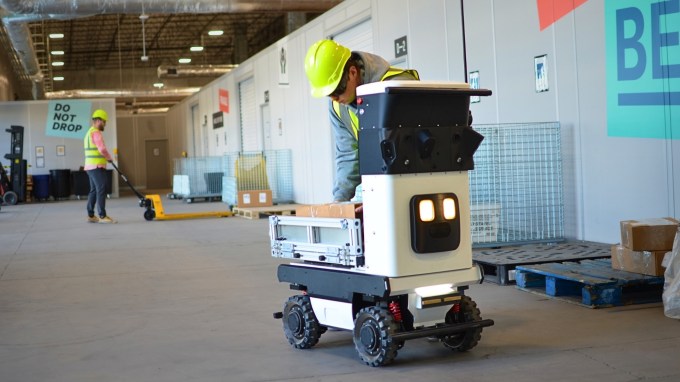From the bustling streets of Tokyo to college campuses across the U.S., autonomous robotics startup Cartken has been making waves with its four-wheeled robots designed for food delivery. However, the company has recently shifted its focus to a new area: industrial applications.

Co-founder and CEO Christian Bersch revealed that the idea of applying their delivery robots to industrial settings was always on the radar as they built the startup. When companies started reaching out about using their robots in factories and labs, Cartken took a closer look and discovered a significant need for industrial and onsite use cases.
In 2023, Cartken landed its first big industrial customer, German manufacturing company ZF Lifetec. Initially, ZF Lifetec used Cartken's existing delivery robots, called the Cartken Courier, which can hold 44 pounds and resembles an Igloo cooler on wheels. Bersch said, "Our food delivery robot started moving production samples around, and it quickly turned into our busiest robot of all. That's when we said, hey, there's real use cases and real market need behind it, and that's when we started targeting that segment more and more."
Despite its early success in the food delivery space, Cartken's founders, including Jake Stelman, Jonas Witt, and Anjali Naik, were encouraged to expand their business model. Switching Cartken's robots from food delivery to an industrial setting wasn't much of a challenge, Bersch said. The AI behind the robots is trained on years of food delivery data, and the devices are designed to traverse various terrains and weather conditions. This means the robots can travel between indoor and outdoor settings, and thanks to data collected from delivering food on Tokyo streets, they can react and maneuver around obstacles.
Cartken has raised more than $20 million from 468 Capital, Incubate Fund, Vela Partners, and other venture firms. The company has started to build out its robotic fleet to reflect its pivot to industrials. Earlier this year, Cartken released the Cartken Hauler, a larger version of the Cartken Courier that can hold up to 660 pounds. The company also released the Cartken Runner, designed for indoor deliveries, and is working on a robotic forklift-like device.
Bersch said, "We have a navigation stack that is parameterizable for different robot sizes. All the AI and machine learning and training that went into that is like transferring directly to the other robots."
Cartken recently announced that it was deepening its four-year relationship with Japanese automaker Mitsubishi, which originally helped the company get the needed certifications to operate their delivery robots on the streets of Tokyo. Melco Mobility Solutions, a company under the Mitsubishi umbrella, just announced that it will be buying nearly 100 Cartken Hauler robots for use in Japanese industrial facilities.
Bersch said, "We're definitely seeing a lot of traction across various industrial and corporate sites, from automotive companies to pharmaceutical to chemical. All these companies typically have people moving stuff from one building to another, whether it's being by hand, on a cart, or a small forklift, and that is really what we're targeting."
While Cartken will continue its food and consumer last-mile delivery business, Bersch said it won't be expanding it. However, the company will still conduct a lot of testing for new capabilities on these existing last-mile delivery routes.